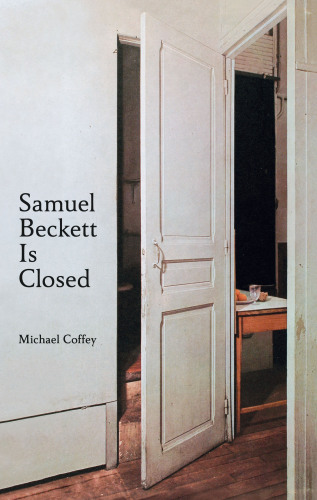
Samuel Beckett Is Closed
کتاب های مرتبط
- اطلاعات
- نقد و بررسی
- دیدگاه کاربران
نقد و بررسی

October 15, 2017
A shape-shifting fictional tribute to the novelist and playwright Samuel Beckett (1906-89), borrowing its structure from one of his works. In 1976, the elliptical, Nobel-winning writer started an unfinished piece, "Long Observation of the Ray," that proposed a method of writing around nine "themes" in a highly precise way, prescribing the number of sentences in recurring sections. Like Oulipo and other fussy literary organizational schemes, the end product risks becoming cold and abstruse, but Coffey (The Business of Naming Things, 2015, etc.) generates a decent amount of warmth adapting the concept and weaving alternating Beckett-themed story threads, distinguishable by different fonts. Among the strands: a critical essay on Beckett's work; an unnamed narrator trying to imagine a story that'll help his lover fall sleep; a fictionalized story of Beckett bemusedly attending a 1964 Mets double-header at Shea Stadium ("There's a lot of futility in this game," Beckett notes); and narratives of post-9/11 terrorism, from reports on treatment of Gitmo prisoners to recollections of the 2015 Paris attacks. Coffey doesn't labor to make each section connect in obvious ways, but over the course of the book the fragmentary pieces help construct an overall defense of Beckett as more of a moral author than he's given credit for. The abstract fatalism that defined works like Waiting for Godot was shaped by Beckett's experience of World War II, Coffey argues, pushing him to contemplate both a sense of defeat and the need to press on after catastrophe, "an aesthetic credo that secured the moral ground enabling art to continue after Auschwitz." Deep familiarity with Beckett's work isn't essential to appreciate Coffey's, but an affinity for Beckett's worldview and gamesmanship helps; Coffey sustains a dark, contemplative mood but leaves a few cracks for humor and optimism to enter. A complex but emotionally effective tribute to the Irish author.
COPYRIGHT(2017) Kirkus Reviews, ALL RIGHTS RESERVED.

November 27, 2017
Coffey (The Business of Naming Things), former co-editorial director of Publishers Weekly, blurs genre and form in a clever exploration of the ways in which art gives life meaning. He pulls inspiration from Samuel Beckett, framing the book with a sequence detailed in Beckett’s notes and utilizing some of Beckett’s “failed” work, including an unpublished manuscript called “Long Observation of the Ray.” Braiding criticism, biography, memoir, literary excerpts, global terrorism reports, and other appropriated texts, the independent narratives begin to evince similar themes. As one of the book’s unnamed narrators resolves to better understand the obsession with Samuel Beckett—“Why Beckett?”—moments arise in which the multiple narratives fit together. These intersections act as a reminder that, while searching for purpose, “even if you think you are caught going nowhere, you are going somewhere.” The book demands active reading and participation in its abstractions. Ultimately, readers must make the connections between Coffey’s personal reflections, the texts he has culled, and Beckett’s abandoned projects. The poetic deconstruction of language is shrewd and prompts consideration of how a given story is interpreted, resulting in a stimulating and singular work.

January 1, 2018
In this follow-up to Coffey's story collection, The Business of Naming Things, multiple narratives unreel into a rumination on the question: "Why Beckett?" Alternating accounts of reading Beckett's work and biography, fragments from a work Beckett abandoned, and a conversation between Beckett and his American publisher are accompanied by notes on Guantanamo Bay interrogation techniques and the memories of a man brutalized by these methods. As these narratives advance, themes emerge and connect, voices harmonize and talk across one another. Ideas about speaking, silence, and interrogation reveal insights into what it means to stand against injustice and to use violence as a means of preserving autonomy--of states, among people, of language itself. VERDICT As with his poetry, Coffey here pushes back on traditional expectations about the distinctions among genres. Applying ideas outlined in Beckett's unfinished "Long Observations on the Ray," he questions how imitation is a kind of analysis and demonstrates how porous authorship can be. The result is a masterly, satisfying reading experience.--John G. Matthews, Washington State Univ. Libs., Pullman
Copyright 2018 Library Journal, LLC Used with permission.

























دیدگاه کاربران